For some people, sleep difficulties are a problem when following the ketogenic diet.
You can experience increased energy, so you find it difficult to fall asleep at night.
You wake up earlier than usual in the morning and ready to jump out of bed in the morning, ready for your day.
It is all good and well at first, but lack of sleep can become unsettling after a few days.
As attention declines, your mind becomes forgetful. Brain fog and mental fatigue can set in even if you are physically ready for your daily workout.
You may notice if you are on a low-carb and in ketosis that you have a troublesome time falling and staying asleep.
I have experienced sleep deprivation first-hand and understood it is probably a concern for others in a state of ketosis.
Ketosis and Insomnia
If you are in ketosis is you withhold carbs to the point where your body runs on fats for fuel.
You basically deplete your glycogen stores and your glucose to the point that your body uses ketones fatty acids for energy.
Your brain ends up working on ketones in the absence of carbs, and you feel better after adjusting to fat for fuel.
There are sometimes some side effects to a ketogenic.
With the right treatment, there are ways to minimize sleep disruption and improve precious resting time when following a low carb lifestyle.
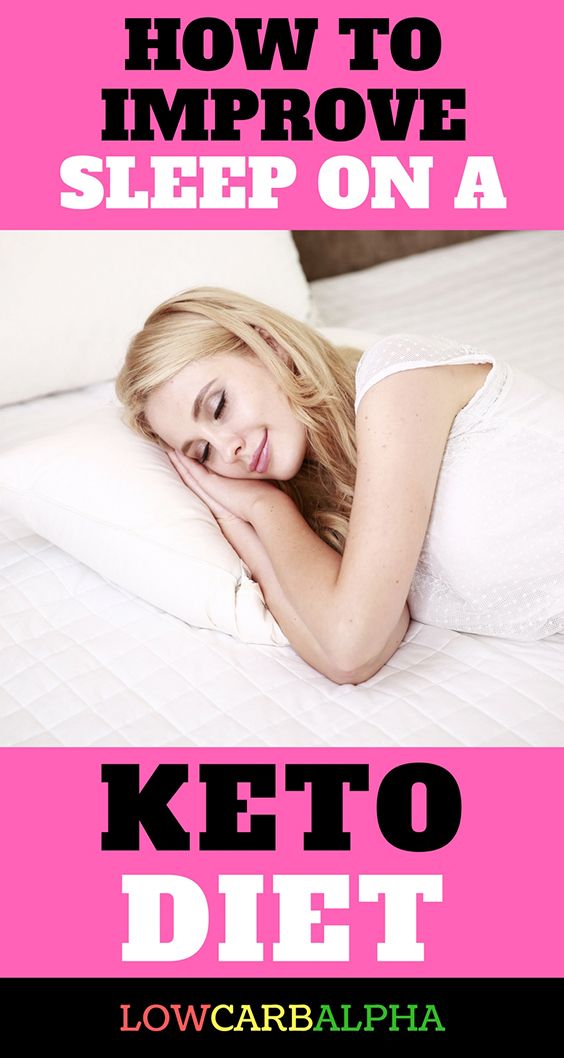
Control Insulin Spikes
Controlling your blood sugar is essential for improving sleep quality and reducing insomnia.
Eating 6 meals a day has its purpose for trying to pack on muscle and size, but reducing amount of meals with intermittent fasting will help balance insulin and keep the weight in check.
Look to avoid snacking throughout the day.
If you eat three big meals a day with snacks in between plus eating late at night, you are going to have too much food in your system.
All you are doing is spiking insulin all day, particularly if eating before going to bed will keep you from sleeping.
You can wake up from blood sugar fluctuations either in the middle of the night or wake up craving foods.
It means you have not yet adapted to ketosis, and you are in the keto-adaptation phase.
Instead of eating at night time you could consume some apple cider vinegar mixed with a little water at bedtime, which will help balance out blood sugar.
To improve sleep and overall health, you may want to combine ketogenic dieting with intermittent fasting.
Limit Bulletproof Coffee Consumption after the Morning
Too much coffee equals too much caffeine which in turn affects the central nervous system.
It stimulates you and contributes to sleep deprivation.
One of the main causes of insomnia for any diet including Paleo and low carb is excessive amounts of caffeine.
If you drink coffee and follow a LCHF diet, then I assume you drink Bulletproof Coffee to help top up healthy fats.
Due to caffeine content, try to limit it to just one cup in the morning.
I rarely drink it but find a bulletproof coffee drunk late morning or very early afternoon super energizes me and does not affect sleep quality.

Digestion Problems
A bloated and heaviness in the stomach is a reason for poor sleep on Keto.
Even though we are adapting to healthier wholesome foods with many different vegetables, some can stay in the stomach for many hours and create gas.
Having lots of food in the stomach prior to sleep keeps your digestive system working when you are trying to relax.
If you experience restlessness and feel uncomfortable change the vegetables you eat.
Cabbage, kale, Brussels sprouts are some culprits. Simply change for other vegetables whatever works for you and try to eat earlier in the evening to improve the absorption of nutrients.
Workout Earlier in the Day
Working out late in the evening can throw your hormones off balances. All the blood is rushing everything throughout your body when you are trying to get to sleep.
I myself exercise earlier on in the day due and find it helps tremendously with sleep, fat loss, and overall health.
Everyone has different lifestyles and cannot accommodate early workouts; just do what you can.
If you exercise in the evening, it is good to relax in a hot bath to open up the blood vessels and allow the blood to get into the muscles.
Hot baths or even a sauna is a good strategy as it puts you in a sort of pre-sleep state.
Overall it is a great approach to help get a better night’s sleep.

Natural Sleep Aids
Everyone, at some point in their lives, suffers from stress or stressful events.
There were times in the past when I had sleep issues for many days and kept waking up throughout the night.
Sometimes enough is enough, and you need something to help the sleep process.
Of course, you want to stay well away from prescription sleeping pills as they will do anything good long-term for your health.
Many natural sleeping aids can help improve sleep, health, and wellness.
I occasionally used to drink the traditional herbal remedy chamomile as a tea before bedtime. It helps combat insomnia and other health illnesses.
You could also supplement with valerian as it can help with insomnia and nervousness.
Although many people use valerian as a sleep aid, its effectiveness is not proven, so it may or may not work for you.
Not Enough Minerals
On a ketogenic diet, the requirements for certain minerals are far more significant than on a typical high-carb eating plan.
The body needs more potassium on a high-fat diet, not just to help prevent keto flu but to help balance electrolytes and calm the nervous system down.
You could end up with a potassium deficiency if you do not eat a nutrient-dense meal plan and consume enough potassium foods.
Low calcium levels in the body may also cause you to have cramps or difficulty getting to sleep.
If you have mineral deficiencies, consider consuming bone broth regularly to top up your body’s level.
You may also prefer sodium & potassium supplements for a more relaxed way to get your electrolytes.

Conclusion
Some people have trouble sleeping, frequently waking up at night from a young age, and no matter what, they struggle to battle insomnia.
Having a structured routine is one of the best ways to avoid sleep deprivation and maintain good quality sleep on a ketogenic diet.
Not enough shut-eye impacts a variety of things especially your ability to lose weight.
If your lifestyle allows it, try and get up at the same time each day. Also, practice going to bed at the same time each night.
Avoid the usual suspects such as caffeine in the evening, and do not eat huge meals before trying to sleep.
Only engage in relaxing activities before bed, such as reading in bed or gentle stretching exercises.
Be sure to avoid technology, especially your phone, to reduce blue light.
I try and limit my exposure, but in today’s social world, it is hard, so I tend to wear blue light blocking glasses.
Do not overthink about sleeping too little.
Thinking about how many hours sleep you will get after checking the clock throughout the night will only stress you out further.
Do you suffer from insomnia on a ketogenic diet and what are your favorite ways to improve sleep problems?

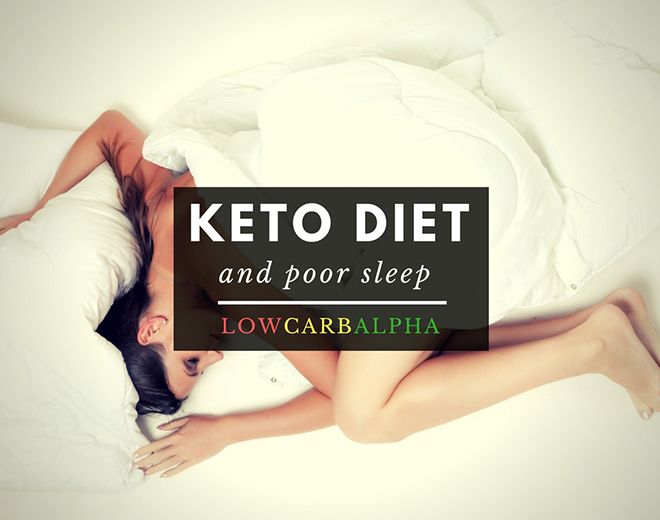


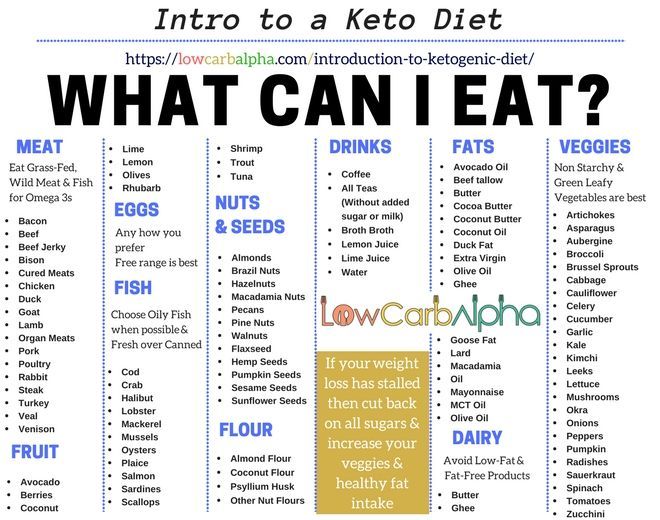
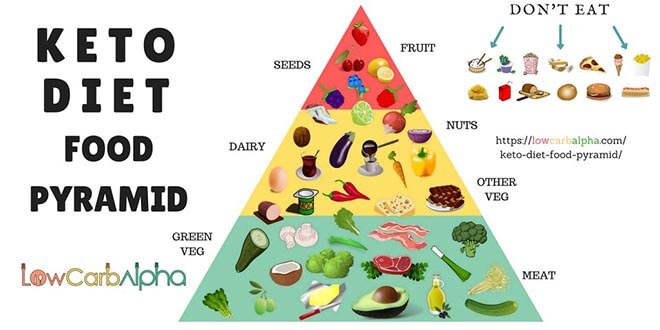

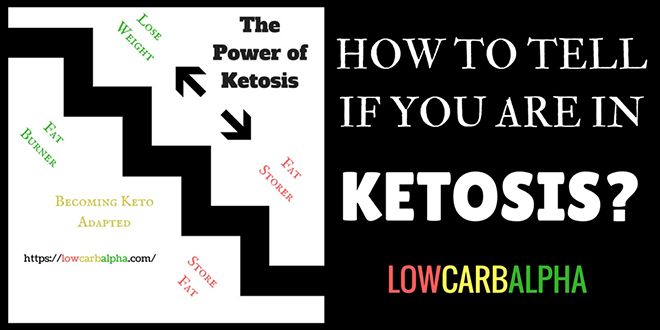
I’ve done keto diet for one and a half weeks. Ketosis says I’m half way there. Not slept last night, lost a hunk the two nights before and it’s 02h00 now and i”m not asleep, totally awake but my body is saying sleep. My brain says otherwise. Body wins. This is unusual:
I’ve had depression and I had issues sleeping, for around six weeks – after this my brain said – oh, hold on there, repairs needed – and made me sleep a night full on deep sleep, according to the thick blue line on my sleep ap. The next night, up and down, in REM sleep – my BRAIN controlled my body to protect both. Now my brain is foxed into doing something unusual. Now, I know this is about metabolic manipulation, but I’ve rarely felt better on this low carb, high fat diet – I feel 20 or 30 years younger for a start. But I need sleep, I need to drive and I have to do this within the law. Look up Gary Hart.
They sometime call this euphoria, but this is slave driving.